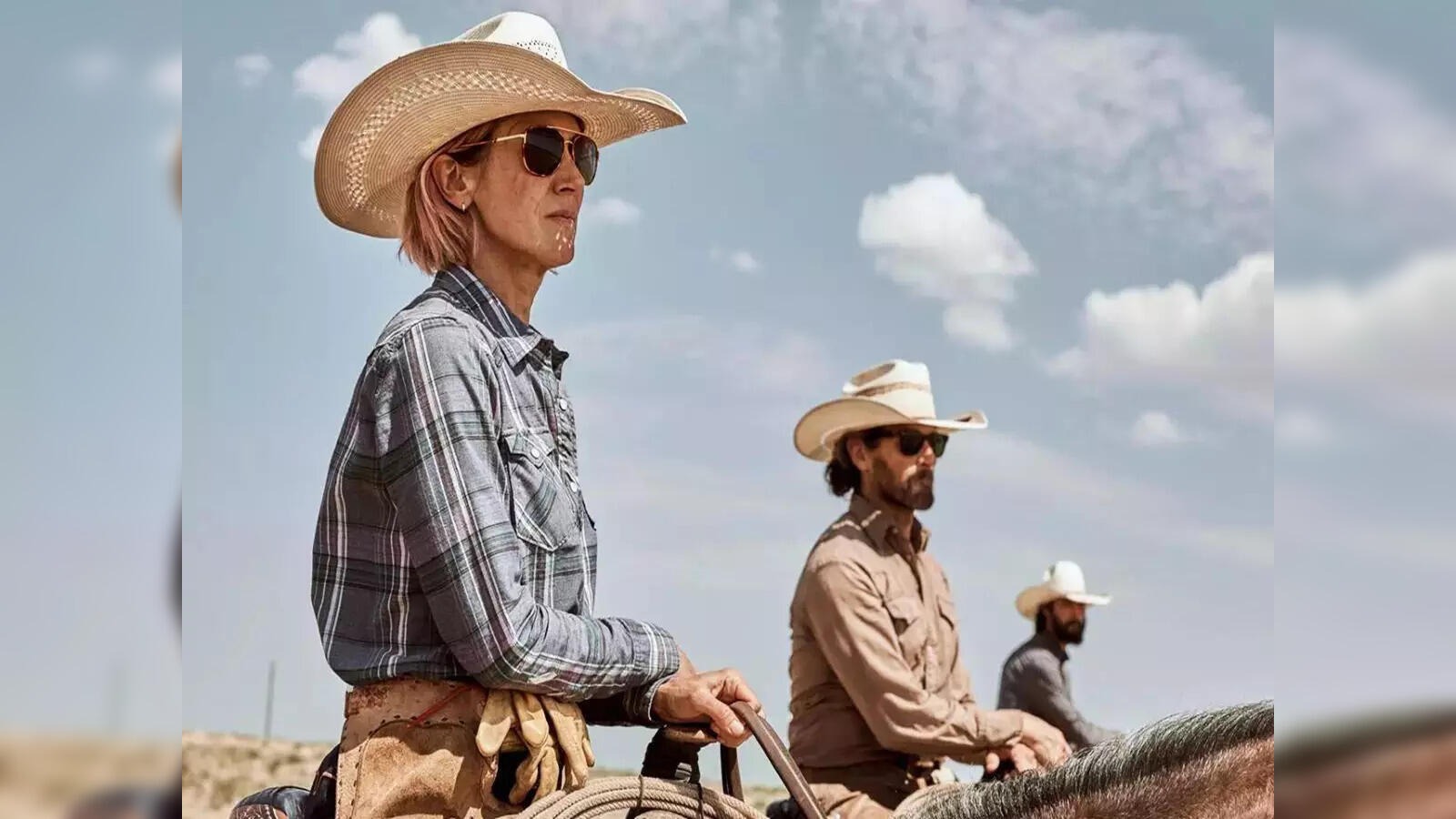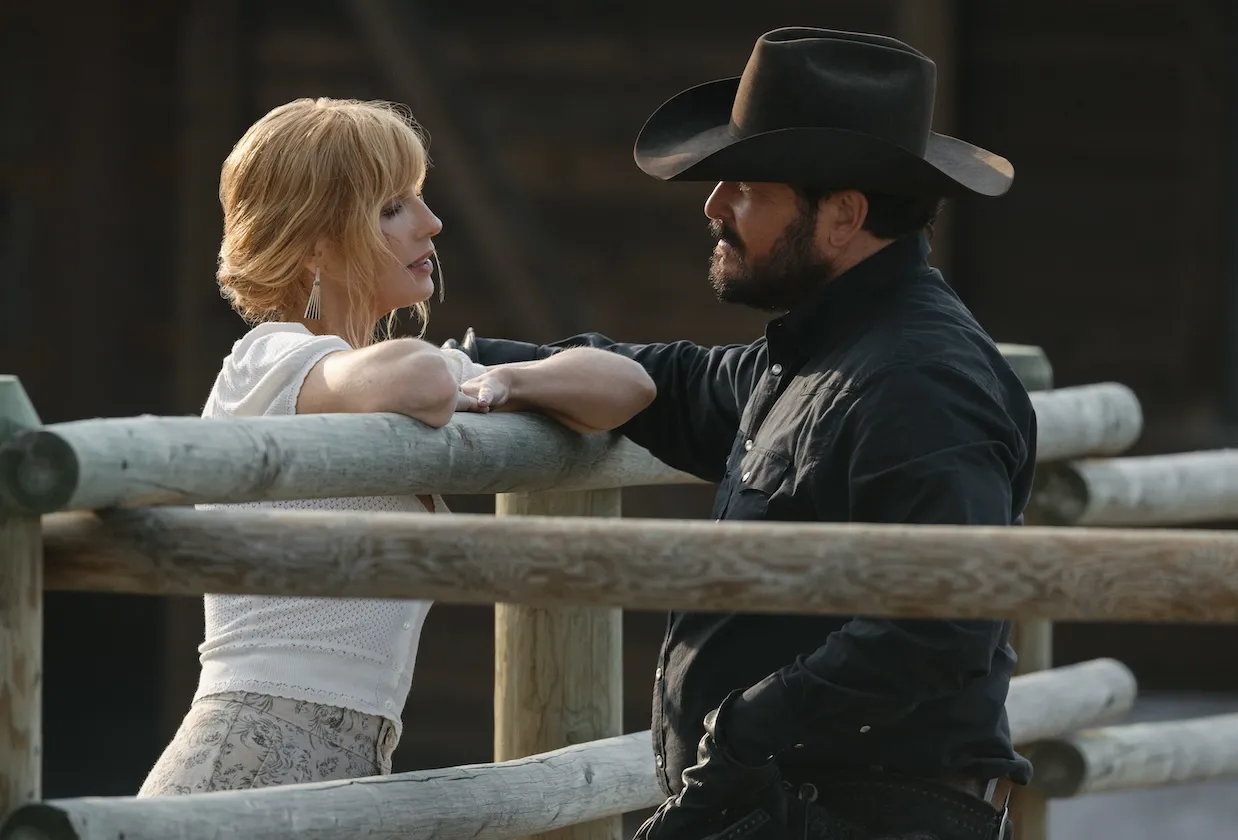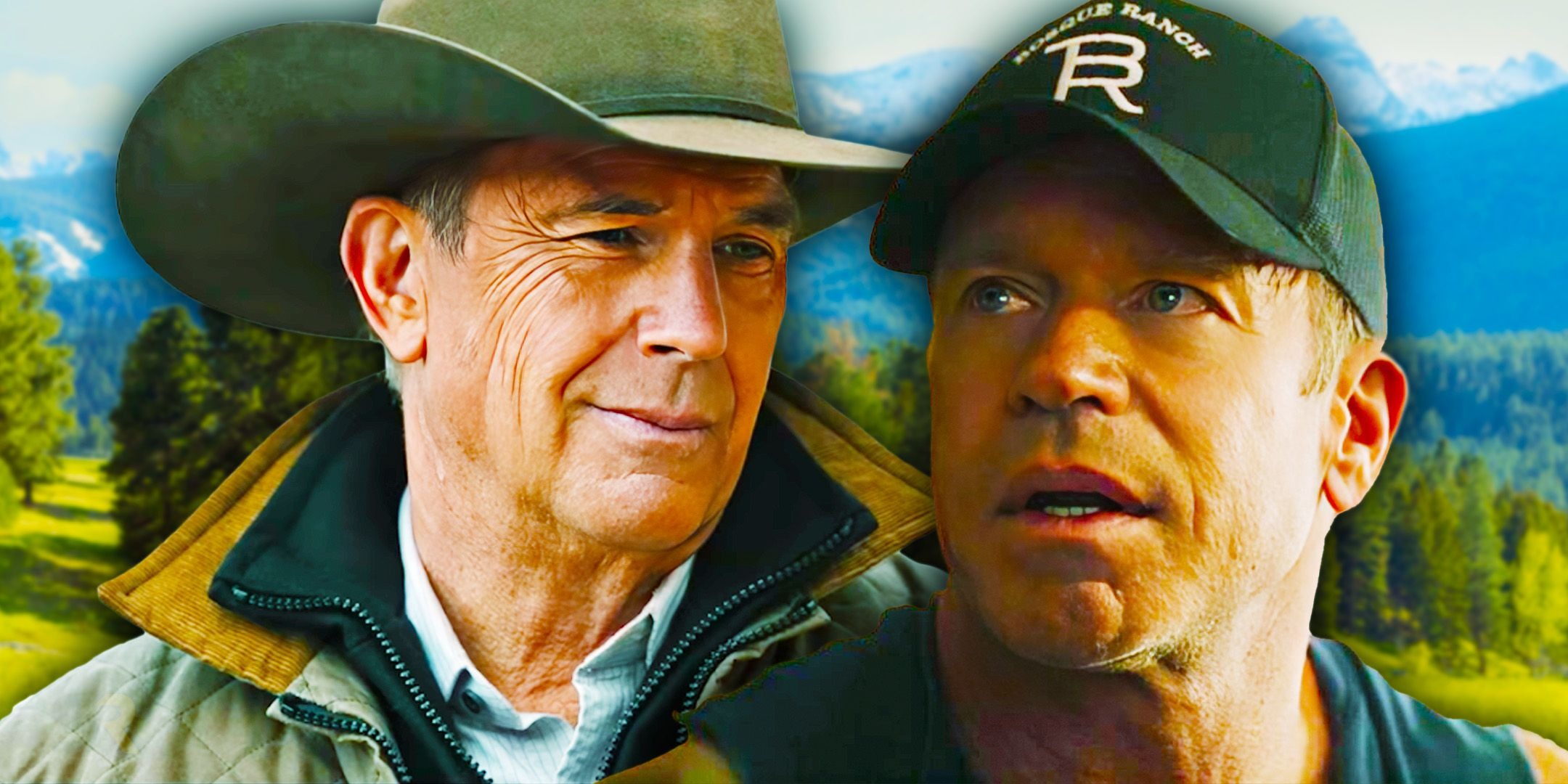Tensions in the Dutton family reached a boiling point in the last episode of Season 5, with several storylines crashing into each other in a way that left viewers asking serious questions.
The feud between Beth and Jamie had already gone past the point of simple family disagreement long before this episode, but things moved into deeper waters as both of them made choices that could not be taken back.
Throughout the season, the quiet threats and verbal standoffs between these two siblings escalated, and by the final moments of this chapter, one truth became clear — only one of them might make it out alive in the future.

The Duttons as a whole are at a crossroads, but it’s Beth and Jamie’s personal war that steals attention. Both are playing dangerous games, but the question remains: has Beth finally reached a point where she will take Jamie out for good?
Beth’s Plan Takes Shape
As the episode develops, it becomes obvious that Beth is done with games and half-measures. Her moves are clear and calculated. She’s spent time gathering information, and with each scene, we see that she’s more than ready to use it.
Her discovery about Jamie’s hidden plans pushes her even closer to the edge. Rather than exposing him outright, she corners him in a way that strips him of options. She uses legal pressure, manipulation, and even physical threats to tighten her grip.
This version of Beth is not just angry. She is deeply wounded, and the way she carries that pain fuels her choices. When she confronts Jamie, her calm is terrifying.
She tells him that his betrayal cannot be forgiven. The history between them, marked by earlier seasons of abuse, manipulation, and hidden secrets, bubbles to the surface during their encounter.
Her expression does not change, but her words cut deeper than any outburst could. She no longer sees Jamie as family. Instead, she treats him like a problem that needs a final solution. It becomes hard to tell whether she is bluffing or truly ready to remove him permanently from her life.
Jamie Tries to Hold His Ground
Jamie, on the other hand, is running out of room to breathe. After spending years trying to prove himself to a father who never truly accepted him, and fighting off Beth’s wrath at every turn, he makes choices that place him in the line of fire. His alliance with political enemies, his hidden agendas, and his desire to carve out power for himself all come back to haunt him.
He tries to put forward a strong face, but his fear shows. The moment Beth confronts him, all of Jamie’s carefully built confidence begins to fall apart. He attempts to argue his position and justify his actions, but Beth has all the evidence. She knows where he buried the truth and makes it known that she can ruin him publicly and privately.
Even in his weakest moment, Jamie still tries to cling to his version of justice. He pleads, reasons, and threatens back. But unlike Beth, who is driven by cold resolve, Jamie reacts more from panic and guilt. Viewers can feel that he knows his time may be running out.
John Dutton’s Role in the Conflict
While much of the attention stays on Beth and Jamie, John Dutton is not far from the heart of the story. He remains a pillar of strength, but the weight of leading the family and holding the ranch together has taken its toll. His decisions affect the lives of everyone around him, and his children continue to fight battles he helped create.
He does not step in to stop Beth from going after Jamie, perhaps because he understands her pain or perhaps because he believes Jamie deserves what is coming. Either way, John allows the situation to play without interference. His silence says more than words. It shows a kind of resignation — an acceptance that this family cannot move forward without serious consequences.
The ranch that has always been John’s pride is no longer just about cattle and land. It’s become a symbol of sacrifice and survival, and it’s clear that the cost of holding onto it is rising.
Did Beth Kill Jamie?
The big question on everyone’s lips after the episode ends is whether Beth actually ended Jamie’s life. The final scenes give very little in terms of concrete answers. What we see instead is Beth confronting Jamie with all her cards on the table. She gives him a choice — but it’s the kind of choice that offers no real escape.

Some viewers may believe that Beth has crossed a line and taken justice into her own hands. Others may think she’s holding onto that decision for later. What is clear is that the fight between them has reached a place where return is no longer possible. From this point on, there can be no healing, only consequences.
The Family Faces the Next Phase
The rest of the Duttons are not immune to the storm. Each member deals with the fallout in their own way. Kayce continues to look for balance between his duty to the family and his desire to build a life of peace.
Monica remains by his side, but both of them carry the pain of loss and hope for something better. Rip remains Beth’s anchor, offering quiet strength without needing the spotlight.
The ranch itself stands as a symbol of all they have fought for, but the unity within the family is weakening. Secrets, regrets, and the hunger for control are eating away at what once held them together. As one conflict cools, another may be waiting just around the corner.
This episode doesn’t try to fix everything. Instead, it holds up a mirror to what the Duttons have become. They are no longer just a family running a ranch. They are people caught in a struggle for identity, power, and survival, each one making choices that carry a heavy price.
Yes, Yellowstone Season 5 is currently available online for those who want to catch up or rewatch it. You can find it on streaming platforms like Paramount+ and Peacock, depending on your region.
Some episodes may also be available through digital purchase on platforms like Amazon Prime Video or Apple TV. Whether you prefer to rent or buy, the options are there to enjoy the full season at your convenience.
(Updated: Jun 20, 2025)



